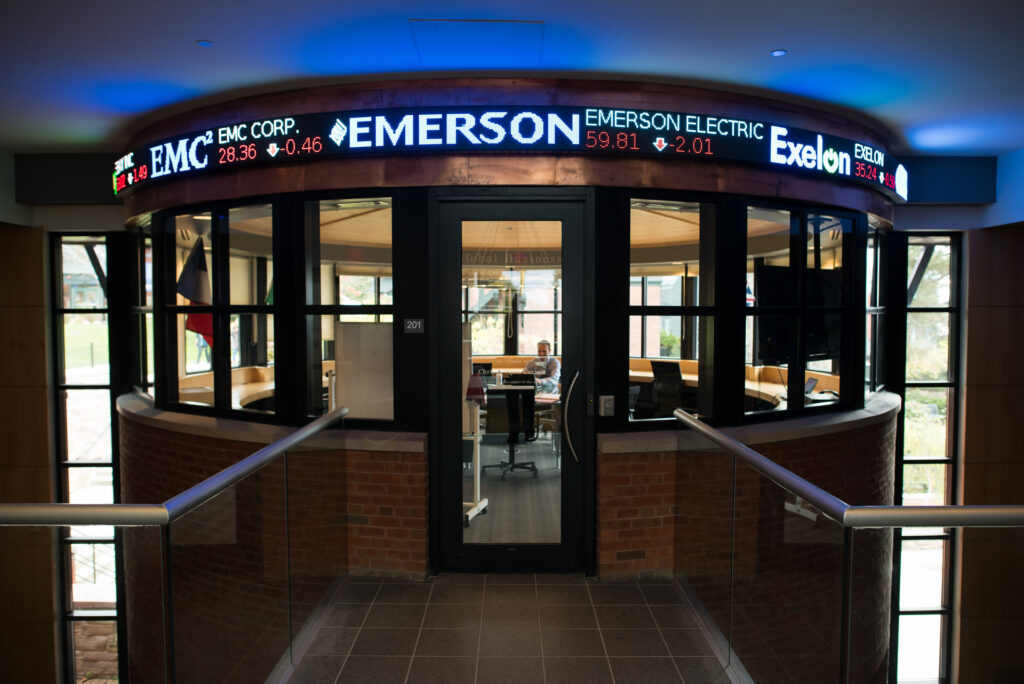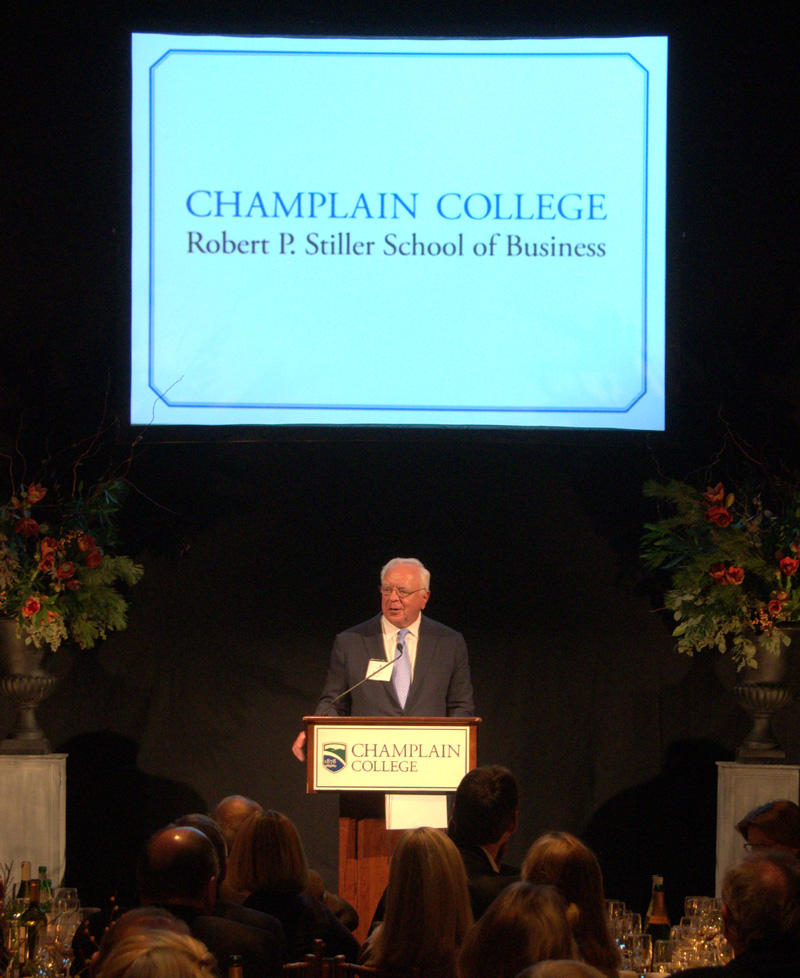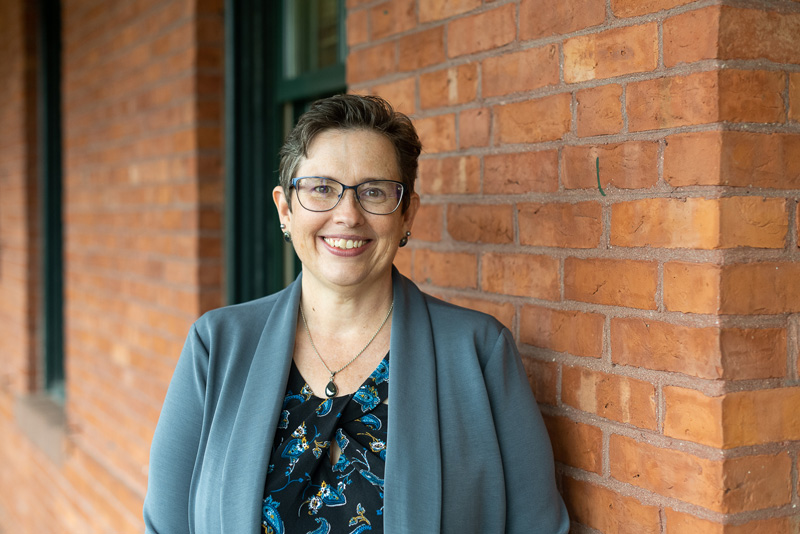This article first ran in the Vermont Business Magazine.
Since joining the Champlain College community in mid-August as Interim Dean, I have had the privilege of developing a much deeper appreciation for the College, its faculty and staff, and our amazingly talented students.
On a tight urban footprint with 65 of Burlington’s most architecturally significant buildings, this campus and the hill on which it resides is a place of much history and beauty. Champlain College is home to four academic divisions— Communications and Creative Media (which houses three of our six renowned Game Studio majors); Education & Human Studies (known for majors in Criminal Justice, Social Work, and Education, among others); Information Technology & Sciences (boasting the Leahy Center for Digital Forensics & Cybersecurity); and the Robert P. Stiller School of Business, Vermont’s longest standing business school.
Yes, I said it—Champlain is home to Vermont’s oldest, continuously running business school.


Research librarians at various Vermont institutions of higher education give us bragging rights. The University of Vermont, founded in 1791, began a program in “Commerce and Economics” in 1899. Castleton University, dating back to 1787, began as a “Normal School,” offering teacher training; its business classes weren’t offered until the 1960s. And Middlebury College, founded in 1800 as a liberal arts college, didn’t add business courses until the 21st century. But, founded in 1878 by George Thompson, our history began as the Burlington Collegiate Institute and Commercial College.
After several name changes over the next 80 years, the institution finally emerged in 1958 as Champlain College. For close to 145 years now, we have prepared thousands of business graduates and adapted our curricula to meet the changing demands of students and the larger economy.
Today, the distinctive Robert P. Stiller School of Business is accredited by the Accreditation Council for Business Schools and Programs (ACBSP), and is proud to continue Champlain’s legacy of delivering a comprehensive business curriculum that features real-world experiences in a global economy.


Named for the transformational CEO and founder of Green Mountain Coffee Roasters, who has long advocated for business to embrace a higher purpose, the Stiller School prepares students to develop an entrepreneurial mindset that drives positive change in their lives, workplaces, communities, and the world.
As a signatory to the United Nations Principles for Responsible Management Education (PRME) and its 17 Sustainable Development Goals, the Stiller School is committed to a common vision of building a better future through and for the leaders of tomorrow. And it is home to the Cooperrider Center for Appreciative Inquiry, a global hub for connecting people to learn, apply, and amplify the field of Appreciative Inquiry.
With seven degree programs and 11 business concentrations, Stiller students are well-prepared to immediately take their place in the workforce, armed with solid business foundations and relevant experiential learning projects in their portfolios. And, perhaps best of all, almost 60 percent of Stiller graduates are employed in Vermont.


For as much as Champlain values in-classroom instruction, Stiller works equally hard to integrate its students into the world of work as early as possible. Developing strong connections with the state’s network of business and government leaders creates new employer-facing opportunities for students to apply their degree programs to multiple real-life projects over the course of their time at Champlain.
Beginning in their second year, students practice this extensive hands-on learning method in marketplace projects, simulations, elevator pitch competitions, capstone projects, case studies, service learning projects, and internships locally and abroad.
Pre-COVID, 40-60 percent of Stiller students spent an academic semester abroad in either Dublin, Montreal, Shanghai, or other third party provider sites, developing important networks and professional skills. Champlain’s ambitious goal is to expand experiential learning to 100 percent of traditional students, so developing active relationships with Vermont’s employer community is a top priority for the Stiller School and Champlain at large.
One way to achieve this robust infrastructure is through the newly launched Stiller Dean’s Advisory Council; a group of 20 industry leaders who have stepped forward to provide strategic thinking, leadership, and support, as well as leverage their vibrant networks, skills, experiential capital, resources, and diversity to strengthen our academic programs.
These individuals from the private, non-profit, and government sectors bring emergent industry information to inform course development and highlight opportunities for students’ experiential learning. Over time, these mutually beneficial relationships will result in even greater job creation across all sectors of Vermont’s economy.
Yes, while it is true that not every job requires a college degree, one may well argue that every employer will benefit from employees who understand elements of accounting, finance, economics, analytics, consumer behavior, management, marketing, international business, entrepreneurship, principles of Appreciative Inquiry, human resources, project management, and team leadership.


These are but some of the courses taught by Stiller School faculty who, to a person, possess great industry knowledge and a deep passion for teaching. The COVID pandemic has forced all of Vermont to adapt quickly to new platforms for delivering goods and services, and higher education is no different.
Champlain’s faculty, like those at Vermont’s other esteemed institutions of higher education, deserve our thanks for their ability to continually adapt under very trying circumstances.
At the Stiller School of Business, Vermont’s oldest, continuously running business school, our goals are to provide a world-class education, cultivate and engage thriving students, and prioritize career success. Together with our strategic partners on campus and in the employer community, we will continue our almost 145 years of success, and prepare highly competitive graduates for the workforce in Vermont and around the country.
If you are interested in learning more about the Stiller School of Business, click here.